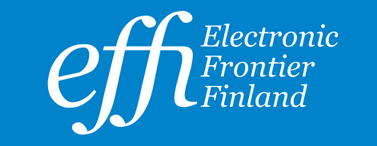In the spring of 2012 in Finland, the father of a young girl received what was practically a blackmail letter from a copyright lawyer. The father was instructed to pay 600 euros as damages for distributing copyright-protected music recordings. Signing a non-disclosure agreement about the payment was also demanded in the letter.
The father contacted the lawyer and denied the distribution of copyrighted material. He explained that his daughter, who had been nine years old at the time of the so-called crimes, had tried to download some songs of her idol, the Finnish artist called Chisu. The girl had been saving money in order to buy the actual CD, but wanted to hear some songs from that new album, and so her dad showed her what keywords to write in search engines. Some time later the father also bought the CD for the girl.
In any case, the files had been at most downloaded but not distributed, although the threat letter specifically was about distribution. Moreover, the downloaded music files did not even work: error messages were displayed when the girl tried to listen to them. According to the father, the files were a trap set up by the copyright holders: the files had been put online in order to see who downloads them so that the blackmail letters could be sent.
In November 2012, something unbelievable happened. Two police officers with a search warrant entered the home of the family and confiscated the girl’s computer. The police officers also tried to make the father to just pay up “to make things easier for everyone involved”.
Even the Finnish Copyright Information and Anti-Piracy Centre (TTVK, a private organisation of the copyright industry) has admitted that the identity of a person who shares copyrighted material cannot be ascertained, and that in Finland the threat letters are sent to the owner of the Internet connection. The owner of the connection is the one who risks being subjected to a search and confiscation of property.
TTVK also says that the majority of people who have received these letters have agreed to non-disclosure and payments (in Finnish). The payment amounts are smaller than in the US, but still hefty. Shocking but true, apparently a copyright holder can demand mafia-style payments from ordinary people who are told to hand over their money and shut up or otherwise the police might come and take away their computers. TTVK has openly admitted that the aim of the letters is to threaten other downloaders (in Finnish).
The disturbing incident was covered in the Finnish online and printed press. In his detailed Facebook post about the incident (in Finnish), the father makes it clear that he has supported artists in many ways for his entire life, but as a result of the unethical practices of the copyright industry he has come to question the sanity of the copyright enforcement system.
